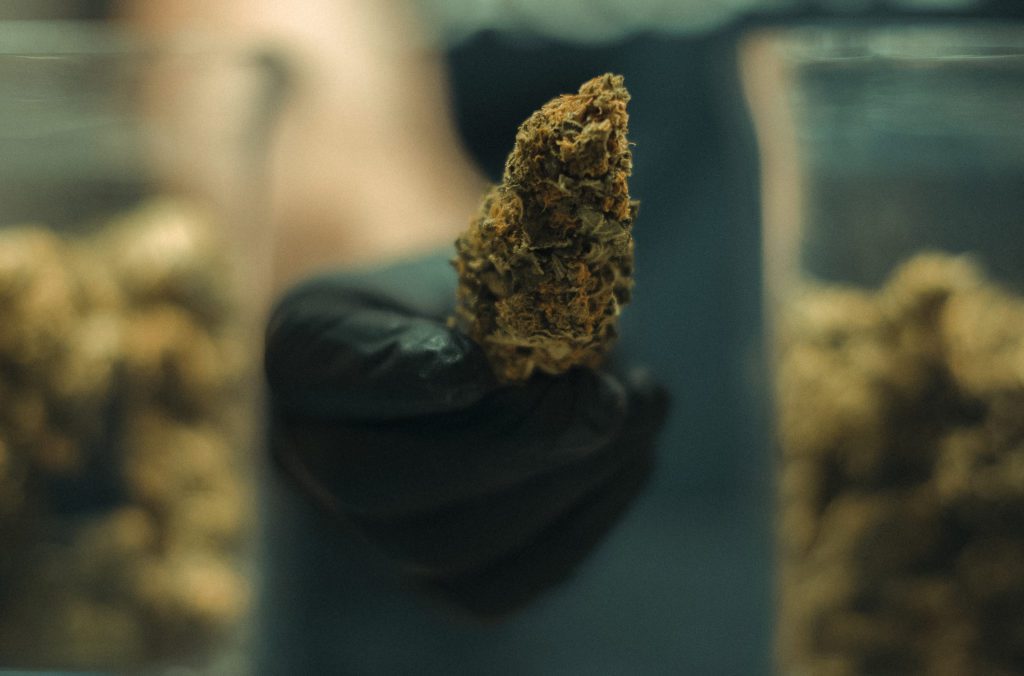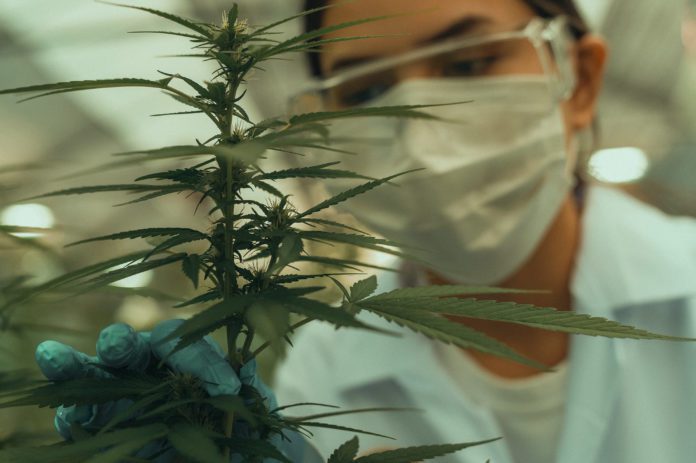Cannabis might seem like a passing trend, but the truth is the herb has been around for thousands of years and may be super effective at preventing coronavirus infections in humans.
That one friend who keeps telling you about how weed cures all diseases? Turns out—maybe they’re onto something, according to a new study.
Infection with the COVID-19 virus may be prevented by Cannabis, according to scientists. The scientists were able to identify key compounds in cannabis that can stop the virus from infecting human cells. The findings suggest that these compounds may be used as a therapeutic agent for antiviral medications against this potentially lethal pathogen.
The results, published in the Journal of Natural Products, were encouraging. The researchers honed in on three compounds: cannabigerolic acid (CBGa); tetrahydrocannabinolic acid (THCa); and cannabidiolic acid (CBDa).
“We identified several cannabinoid ligands and ranked them by affinity to the spike protein,” van Breemen said. “The two cannabinoids with the highest affinities for the spike protein were CBDa and CBGa, and they were confirmed to block infection.”
The researchers incubated the live virus with cannabis compounds for 24 hours before injecting it into human epithelial cells. They discovered that cells treated with CBDa and CBGa lacked SARS-COV-2 RNA.
They repeated the procedure on live alpha and beta variants discovered in the United Kingdom and South Africa, respectively, and discovered that the compounds had the same effect in both cases. They are optimistic that these compounds will be effective against other variants as well.
Unfortunately, the study did not focus on THCa (first cousins to the compound responsible for a lot of marijuana’s psychoactive effects). Due to the fact that it is a controlled substance, the researchers were unable to get enough of the stuff to carry out their experiment.

The idea of smokeable weed is nothing new. The main psychoactive component, tetrahydrocannabinol (THC), has been around for decades. What most people don’t know, though, is that THC isn’t the only interesting chemical in cannabis.
In the world of medicinal cannabis, there are few cannabinoids you need to know: CBD, CBDa and CBGa.
What is CBD
CBD (or cannabidiol), is a versatile compound that has been used for years by people to treat everything from inflammation to epilepsy. It’s most commonly found in hemp-based products like oils, creams and lotions. But this isn’t the same CBD you’ve heard so much about recently. CBD is activated in hemp plants from its original form CBDa. In other words, CBD isn’t just a component of hemp — it’s an ingredient of hemp. CBDa is the raw ingredient that can then be extracted in order to produce CBD oil.
What is CBDA
CBDa (or cannabidiolic acid), is a non-psychoactive cannabinoid. It’s found in the stems, leaves, and flowers of cannabis plants, and it’s usually extracted by “juicing” plant material.
CBDa can be used for a variety of applications. It can be added to foods, drinks, oils or used in tinctures or concentrated herbal extracts.
So, what is the difference between CBDa and CBD? Basically, CBDa is the raw form of CBD.
“Decarboxylation” is the process of heating CBDa to the point where it becomes CBD. This can be done with any acidic cannabinoids by smoking, vaporizing, refluxing or baking.
What is CBGA
CBGA (or cannabigerolic acid), is known as the “mother cannabinoid” because without it, there would be no THC, CBDa, CBD or any other important cannabinoid.
CBGa is a cannabinoid that is one of the most common found in cannabis plants. It has no psychoactive properties, but it does influence other cannabinoids.
There is a chemical reaction that occurs in the cannabis plant called the CBGa reaction. The reaction involves the combining of two organic compounds, olivetolic acid and geranyl pyrophosphate. This results in a compound known as CBGa, which is a critical building block in the formation of cannabinoids THCa, CBDa, CBCa, and CBG.
CBGa is converted into molecules such as THCa, which is the raw, unactivated molecule that becomes THC after heat is applied.
CBGa is present during the growing phase of the cannabis plant, and there’s a lot of it. The biggest difference between CBGa and other cannabinoids is how long they stay in your body: while THC can remain in your system for as long as two weeks after smoking, consuming CBDa doesn’t last nearly as long. The good news? Since it doesn’t stick around very long, CBGa isn’t likely to cause any kind of impairment.
What about puffing on a joint?
At this point, it doesn’t appear that merely smoking marijuana, even a high-CBD strain, will have the same effect. We don’t have enough information to make a recommendation about it at this point.
Cannabis products, which typically contain high concentrations of the psychoactive compound THC, do not work in the same way as raw CBDa or CBGa products, such as oils.
In other words, you can’t really get CBG-A and CBD-A through any method of cannabis consumption which results in a high. A hemp plant that was likely destined for your bong’s resin-stained bowl in the first place would need to be extracted for this purpose.
As a result, any method of ingesting cannabis that results in a high does not provide a reliable source of CBGa and CBDa. Rather than that, it would have to be extracted from a hemp plant.
Luckily, there’s an alternative: hemp. Hemp plants are bred to have almost no THC—any trace amounts will be too low to get you high—but they do have plenty of these cannabinoids. With hemp products such as oils and tinctures available at your local smoke shop or dispensary, it’s easy to get all the cannabinoids you need without breaking any laws.
The first step in finding a high-quality CBD oils and other products for your health and well-being, is to learn as much as you can about the plant.
Spirit of Nature CBD Oil is a whole-plant extract that contains a wide range of synergistic cannabinoids and terpenes. These CBD-rich oils also contain significant amounts of secondary cannabinoids like CBC, CBG, CBN, and others. Cannabinoids work synergistically and are more effective when found together than when isolated.
With that said, we believe it is clear what we should do next: legalize pot so that this research can include THCa, plant cannabis everywhere, and send everyone on earth enough cannabis extracts to end this thing for good!
